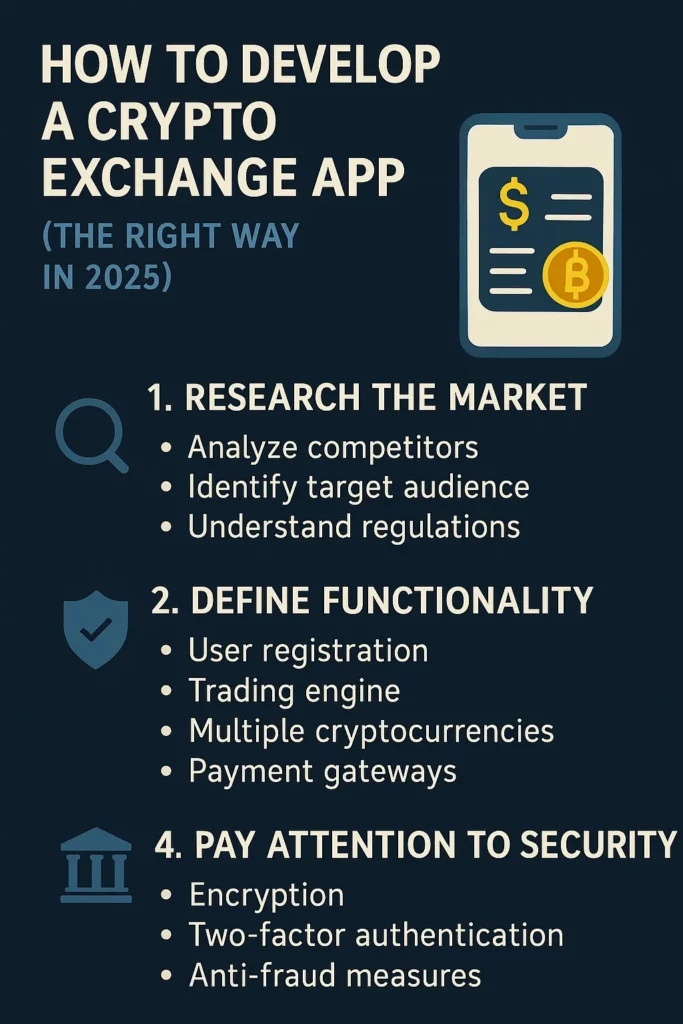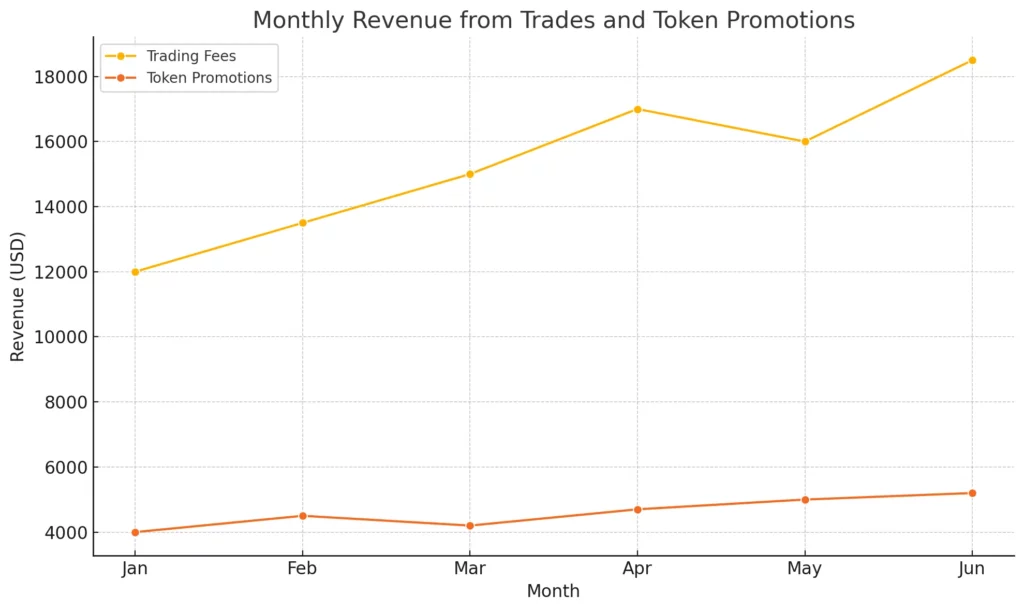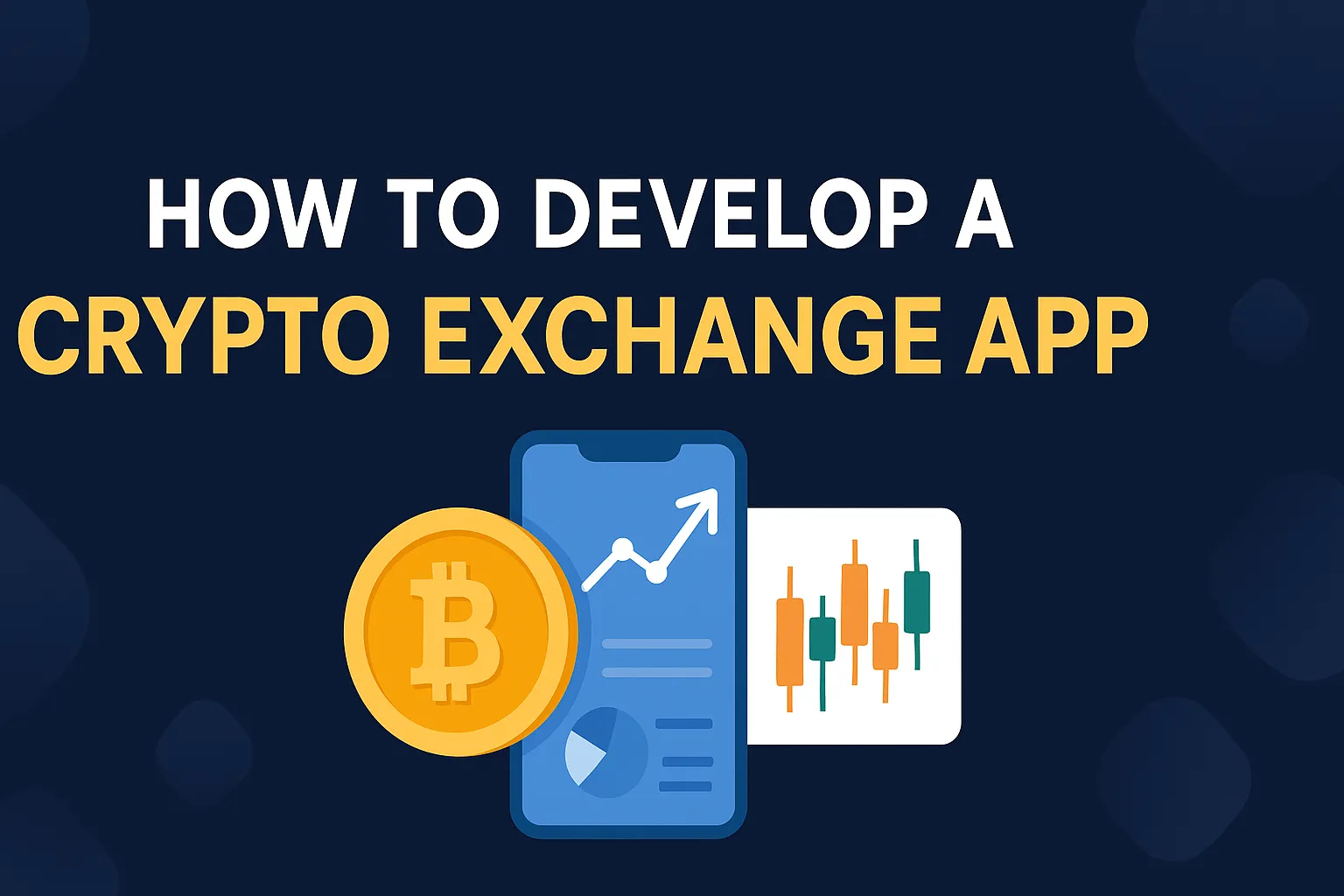Remember when buying crypto meant downloading shady wallet extensions and praying your money didn’t vanish into the blockchain abyss? Fast forward to 2025 and the world has caught up. Now, crypto exchange apps aren’t just for traders in hoodies—they’re for institutions, hobbyists, and your aunt who just discovered Dogecoin. And if you’re here, chances are you’re thinking, “What if I built one too?”
I once met a founder who tried to launch a crypto app by duct-taping APIs and YouTube tutorials. It was chaos. But when he switched to a structured, clone-based exchange framework, he went live in 5 weeks—with a slick UI, regulatory guards, and live trading. Moral of the story? Building a crypto exchange is tough. But with the right plan (and the right tech partner), it’s more doable than ever.
In this guide, we’ll unpack how to develop a crypto exchange app that’s smart, secure, scalable—and way less intimidating than it sounds.
Why Build a Crypto Exchange Business Model in 2025?
Let’s cut to the chase: the global cryptocurrency market is projected to hit $6.7 trillion by 2030 (Statista). Whether it’s BTC, ETH, USDT, or the next big meme coin, digital assets are no longer niche—they’re mainstream.

Why your own exchange makes sense while launch
- High margins: Transaction fees, spread, listing fees.
- Loyal user base: Traders don’t switch often.
- Control the UX: Target specific regions or demographics.
- Tokenization is exploding: From real estate to rewards programs.
Learn More: Business Model for Crypto Exchange: How Trading Platforms Make Money
Key Features Every Crypto Exchange App Needs
Building a crypto exchange app is like assembling a spaceship. Skip a component, and you’re toast.
User Authentication & Security
- 2FA, biometric login
- Email + SMS OTP
- Anti-phishing codes
- KYC integration (Jumio, Onfido)
Real-time Trading Engine
- Order book (limit/market orders)
- Trade matching logic
- Live charts (candlesticks, RSI, MACD)
- Price tickers with WebSocket feed
Wallet System
- Multi-coin wallet (BTC, ETH, USDT, etc.)
- Cold wallet integration
- Hot wallet + transaction limits
- QR scan for deposits
Admin & Analytics Panel
- Transaction monitoring
- User KYC status
- Fee configuration
- Token listing control
Compliance & Reporting
- AML checks
- Suspicious activity alerts
- Tax report exports
- Audit logs
Tech Stack That Powers Top Crypto Apps
Here’s what you need under the hood to run a rocketship exchange:
- Frontend: React.js / Vue.js (web), Flutter (mobile)
- Backend: Node.js / GoLang
- Database: PostgreSQL, Redis
- Real-Time Feed: WebSocket, RabbitMQ
- Blockchain Nodes: BTC, ETH, BNB, MATIC
- Security: AES-256 encryption, HMAC, JWT
- Hosting: AWS with autoscaling & DDoS protection
Monetization Strategies for Your Exchange
Money talks—especially in crypto. Here’s how your app can earn:
| Revenue Stream | Description |
|---|---|
| Trading Fees | Take a cut of every buy/sell order |
| Withdrawal Fees | Small fee for external transfers |
| Token Listings | Charge projects to list their coin |
| Margin Lending | Interest on borrowed assets |
| Ad & Promotions | Boosted tokens or homepage slots |
Learn More: Crypto Exchange Revenue Model 2025 | Profit Strategies
How Miracuves Helps You Build Smarter
At Miracuves, we’ve built clone-based crypto exchange platforms for startups, trading communities, and emerging economies. Here’s why people trust us:
- Pre-built trading engine with real-time order matching
- Mobile apps + web dashboard
- Multi-coin wallet & blockchain integration
- AML-ready with KYC modules
- Lightning-fast deployment (in weeks, not months)

Conclusion:
Crypto is no longer the Wild West—it’s the new Wall Street. But launching your own exchange doesn’t need to be overwhelming. With the right tools, features, and support, you can go from concept to coin in record time.
At Miracuves, we help innovators launch high-performance app clones that are fast, scalable, and monetization-ready.
Ready to turn your idea into reality? Let’s build together.
FAQ’s
1) Is it legal to run a crypto exchange?
Yes, but it depends on the country. Always check your local regulations and licensing requirements.
2) Do I need to build a blockchain too?
Nope. You’re building an exchange, not a coin. You’ll integrate with existing chains like Ethereum, Bitcoin, etc.
3) How long does it take to build?
With Miracuves, you can launch your app in just 3–6 days guaranteed, ensuring a rapid and efficient go-to-market.
4) Can I support multiple coins and tokens?
Absolutely. We support integration with major blockchains and custom token support (ERC-20, BEP-20, etc.).
5) What security measures are included?
End-to-end encryption, cold wallets, 2FA, DDOS protection, and fraud detection systems.
6) Can I list my own token on the app?
Yes! You can list your token and even build a launchpad for others.








